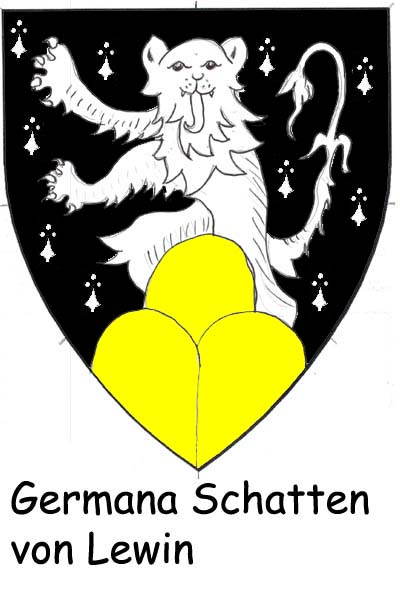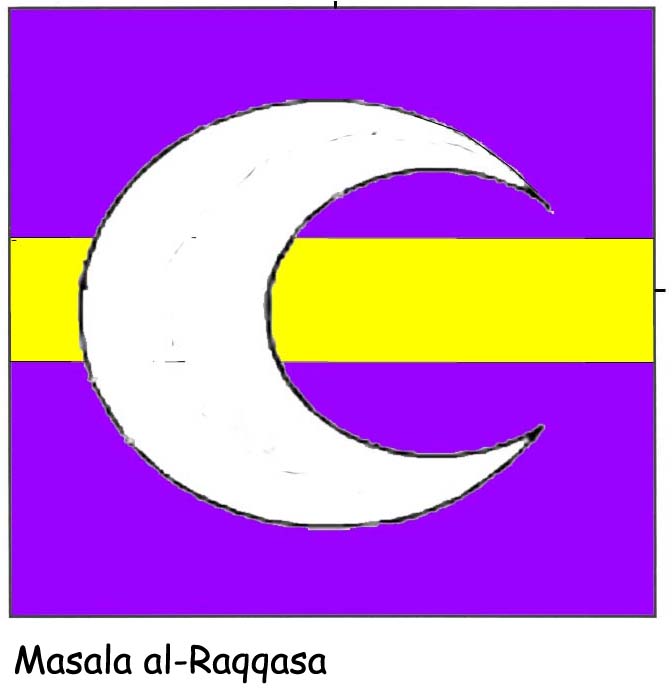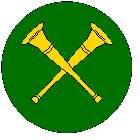|
Atenveldt Submissions (excerpted from the S.C.A. College of Arms' Letters of Acceptance and Return)
- Registrations and Returns,November 2020
- Registrations and Returns,October 2020
- Registrations and No Returns,September 2020
- Registrations and No Returns,August 2020
- Registrations and Pends,July 2020
- Registrations and Returns,June 2020
- Registrations and No Returns,May 2020
- Registrations and Returns,April 2020
- Registrations and Returns,March 2020
- Registrations and Returns, February 2020
- Registrations and No Returns, January 2020
- Registrations and Returns,December 2019
- Registrations and Returns,November 2019
- Registrations and Returns,October 2019
- Registrations and Returns,September 2019
- Registrations and Returns,August 2019
- Registrations and Returns,July 2019
- Registrations and Returns,June 2019
- Registrations and Returns,May 2019
- Registrations and Returns,April` 2019
- Registrations and Returns,March 2019
- Registrations and Returns,February 2019
- Registrations and Returns,January 2019
- Registrations and Returns,December 2018
- Registrations and Returns,November 2018
- Registrations and Returns,October 2018
- Registrations and Returns,September 2018
- Registrations and Returns,August 2018
- Registrations and Returns,July 2018
- Registrations and Returns,June 2018
- Registrations and No Returns,May 2018
- Registrations and Returns,April 2018
- Registrations and Returns,March 2018
- Registrations and Returns,February 2018
- Registrations and Returns,January 2018
- Registrations and Returns,December 2017
- Registrations and Returns,November 2017
- Registrations and No Returns,October 2017
- No Registrations and No Returns,September 2017
- Registrations and No Returns,August 2017
- Registrations and Returns,July 2017
- Registrations and Returns,June 2017
- Registrations and Returns,April 2017
- Registrations and Returns,March 2017
- Registrations and Returns,January 2017
- Registrations and Returns,December 2016
- Registrations and Returns,November 2016
- Registrations and Returns,October 2016
- Registrations and Returns,August 2016
- Registrations and Returns,July 2016
- Registrations and Returns,June 2016
- Registrations and Returns,May 2016
- Registrations and Returns,April 2016
- Registrations and Returns,March 2016
- Registrations and Returns,February 2016
- Registrations and Returns,January 2016
- Registrations and Returns,December 2015
- Registrations and Returns,November 2015
- Registrations and Returns,October 2015
- Registrations and Returns,September 2015
- Registrations and Returns,August 2015
- Registrations and Returns,July 2015
- Registrations and Returns,June 2015
- Registrations and Returns,May 2015
- Registrations and Returns,April 2015
- Registrations and Returns,March 2015
- Registrations and Returns,February 2015
- Registrations and Returns,December 2014
- Registrations and Returns,Novembery 2014
- Registrations and Returns,October 2014
- Registrations and Returns,September 2014
- Registrations and Returns,August 2014
- Registrations and Returns,July 2014
- Registrations and Returns,June 2014
- Registrations and Returns,May 2014
- Registrations and No Returns,April 2014
- Registrations and Returns,March 2014
- Registrations and Returns,February 2014
- Registrations and Returns,January 2014
- Registrations and No Returns,December 2013
- Registrations and Returns,November 2013
- Registrations and Returns,October 2013
- Registrations and No Returns,September 2013
- Registrations and Returns,August 2013
- Registrations and Returns,July 2013
- Registrations and Returns,June 2013
- Registrations and No Returns,May 2013
- Registrations and Returns,April 2013
- Registrations and Returns,March 2013
- Registrations and No Returns,February 2013
- Registrations and Returns,January 2013
- Registrations and Returns,December 2012
- Registrations and Returns,November 2012
- Registrations and No Returns,October 2012
- Registrations and Returns,September 2012
- Registrations and Returns,August 2012
- Registrations and Returns,July 2012
- Registrations and Returns,June 2012
- Registrations and Returns,May 2012
- Registrations and Returns,April 2012
- Registrations and Returns,March 2012
- Registrations and Returns,February 2012
- Registrations and Returns,January 2012
- Registrations and Returns,December 2011
- Registrations and Returns,November 2011
- Registrations and No Returns,October 2011
- Registrations and Returns,September 2011
- Registrations and Returns,August 2011
- Registrations and Returns,July 2011
- Registrations and Returns,June 2011
- Registrations and No Returns,May 2011
- Registrations and No Returns,April 2011
- Registrations and Returns,March 2011
- Registrations and Returns,February 2011
- Registrations and Returns,January 2011
- Registrations and Returns,December 2010
- Registrations and No Returns,November 2010
- Registrations and No Returns,October 2010
- Registrations and Returns, September 2010
- Registrations and Returns, August 2010
- Registrations and Returns, July 2010
- Registrations and Returns, June 2010
- Registrations and Returns, May 2010
- Registrations and Returns, April 2010
- Registrations and Returns, March 2010
- Registrations and Returns, February 2010
- Registrations and Returns, January 2010
- Registrations and Returns, December 2009
- Registrations and No Returns, November 2009
- Registrations and Returns, October 2009
- Registrations and Returns, September 2009
- Registrations and Returns, August 2009
- Registrations and Returns, July 2009
- Registrations and Returns, June 2009
- Registrations and Returns, May 2009
- Registrations and Returns, April 2009
- Registrations and Returns, March 2009
- Registrations and Returns, February 2009
- Registrations and Returns, January 2009
- Registrations and Returns, December 2008
- Registrations and Returns, November 2008
- Registrations and Returns, October 2008
- Registrations and Returns, September 2008
- Registrations and Returns, August 2008
- Registrations and Returns, July 2008
- Registrations and Returns, June 2008
- Registrations and Returns, May 2008
- Registrations and Returns, April 2008
- Registrations and No Returns, March 2008
- Registrations and No Returns, February 2008
- Registrations and Returns, January 2008
- Registrations and Returns, November 2007
- Registrations and Returns, October 2007
- Registrations and Returns, September 2007
- Registrations and Returns, August 2007
- Registrations and Returns, July 2007
- Registrations and Returns, June 2007
- Registrations and Returns, May 2007
- Registrations and NO Returns, April 2007
- Registrations and Returns, March 2007
- Registrations and Returns, February 2007
- Registrations and Returns, January 2007
- Registrations and Returns, December 2006
- Registrations and NO Returns, November 2006
- Registrations and Returns, October 2006
- Registrations and Returns, September 2006
- Registrations and Returns, August 2006
- Registrations and Returns, July 2006
- Registrations and Returns, June 2006
- Registrations and Returns, May 2006
- Registrations and Returns, March 2006
- Registrations and Returns, February 2006
- Registrations and Returns, January 2006
- Registrations and Returns, November 2005
- Registrations and Returns, October 2005
- Registrations and Returns, September 2005
- Registrations and Returns, August 2005
- Registrations and Returns, July 2005
- Registrations and NO Returns, June 2005
- Registrations and Returns, May 2005
- Registrations and Returns, April 2005
- Registrations and Returns, March 2005
- Registrations and Returns, February 2005
- Registrations and Returns, January 2005
- Registrations and Returns, December 2004
- Registrations and Returns, November 2004
- NO Registrations and NO Returns, October 2004
- Registrations and Returns, September 2004
- Registrations and Returns, August 2004
- Registrations and Returns, July 2004
- Registrations and Returns, June 2004
- Registrations and Returns, May 2004
- Registrations and Returns, April 2004
- NO Registrations and NO Returns, March 2004
- Registrations and Returns, February 2004
- Registrations and Returns, January 2004
- Registrations and Returns, December 2003
- Registrations and Returns, November 2003
- Registrations and Returns, October 2003
- NO Registrations and NO Returns, September 2003
- Registrations and Returns, August 2003
- Registrations and Returns, July 2003
- Registrations and Returns, June 2003
- Registrations and Returns, May 2003
- Registrations and Returns, April 2003
- NO Registrations and NO Returns, March 2003
- Registrations and Returns, February 2003
- Registrations and Returns, January 2003
- Registrations and Returns, December 2002
- Registrations and Returns, November 2002
- Registrations and Returns, October 2002
- Registrations and Returns, September 2002
- Registrations and Returns, August 2002
- Registrations and Returns, July 2002
- Registrations and Returns, June 2002
- NO Registrations and NO Returns, May 2002
- Registrations and Returns, April 2002
- Registrations and Returns, March 2002
- Registrations and Returns, February 2002
- Registrations and Returns, January 2002
- Registrations and Returns, December 2001
- Registrations and NO Returns!, November 2001
- Registrations and NO Returns!, October 2001
- Registrations and Returns, September 2001
- Registrations and Returns, August 2001
- Registrations and Returns, July 2001
- Registrations and Returns, June 2001
- Registrations and NO Returns!, May 2001
- Registrations and Returns, April 2001
- Registrations and Returns, March 2001
- Registrations and Returns, February 2001
- Registrations and Returns, December 2000
- Registrations and Returns, November 2000
- Registrations and Returns, October 2000
- Registrations and Returns, August 2000
- Registrations and Returns, July 2000
- Registrations and Returns, June 2000
The following submissions
were registered by the SCA College or Arms, December 2019:
- Germana
Schatten von Lewin. Name
and device. Counter-ermine,
a lion rampant gardant argent issuant from a trimount Or.
Submitted as Germana
Schatten von Löwen, the submitted spelling
of the locative byname could not be documented to period. ffride
wlffsdotter found the period form of the town name as Lewin,
making the proper byname form von Lewin.
We have made this change for registration.
The submitter
requested authenticity for a "12th-14th C. Saxonian woman from
the town of Löwen." Although it can be registered, this name
does not meet this request because we were not able to find the
spelling Schatten as early as the 14th century. The closest
attested form we could find was Schatan, which is dated to
1290 in Socin. In addition, although the town name Lewin
appears in the 13th century, it is found in Silesia, not
Saxony.
Artist's note: Please show more of the lion. If a
demi-lion is desired, the submitter should submit a device change
with the lion issuant from the trimount at the waist.
- Magnus
Grimsson. Name (see RETURNS for device).
-
Masala
al-Raqqasa. Reblazon of badge. Purpure, a fess Or, overall a
decrescent argent.
Blazoned when registered in July 2002
as Purpure, a fess Or overall a decrescent argent, we are
adding punctuation for clarity. -
Masala
al-Raqqasa. Badge (see RETURNS for device). Purpure, a fess
Or, overall an increscent argent.
-
-
The following were
returned for further work:
-
-
Hamasaki
Kojirome Miyako. Name appeal.
This is an appeal from the
October 2018 return of the same name, where it was ruled:
This name must be
returned because it does not fit an attested period pattern for
Japanese names. Kojirou, the root of the constructed element
Kojirome, was documented on the Letter of Intent as an azana,
a Confucian scholarly name. There is no evidence that such names were
modified with feminine suffixes such as the submitter proposes
here.
Additionally, although Kojirou is also found as a
masculine yobina or given name, there is no evidence that
masculine yobinas were made into feminine elements by the
addition of the suffix -me. Moreover, even if such evidence
could be found, this name still would not fit an attested pattern
because we have no evidence for feminine Japanese names with two
yobinas.
Finally, Hamasaki is not a correct
transliteration of the first name element. S{o,}lveig Þrándardóttir
advises that the correct transliteration is Hamazaki.
We
would drop the problematic element and register the name as Hamazaki
Miyako, but the submitter does not allow any changes.
Regarding
the transliteration of Hamasaki, the appeal noted that -saki is found
as a second element in NCMJ. Under Works of Nature - Slope there are
eight examples of this kanji. Two are transliterated -saki and six as
-zaki. Given these examples, we are willing to give the submitter the
benefit of the doubt that Hamasaki is a valid transliteration of the
kanji.
Regarding the element
Kojirome. The submitter is correct that the second element was
not documented on the Letter of Intent as an azana. That
detail was from commentary. The appeal does not address the use of an
azana. As noted in the original return, Kojirou is also found
as a masculine yobina meaning second son. Unfortunately, we
still have no evidence of adding a feminine terminal to a masculine
birth order name. The appeal cites NCMJ, from Warrior Families in the
Structure of Japanese Names section, to support this formation:
"Generally, women should choose a yobina related to
masculine yobina. This is neither as difficult nor as unusual
as it may sound. All a woman need do is attach an appropriate suffix
to a name of correct form." However, the author has explained,
"No, it does not mean adding a feminine terminal to a masculine
birth order name. I never even considered that as a possible reading
when I originally wrote NCMJ. Rather, there are a variety of simple
name elements which can be used to form masculine names to which can
be added a feminine terminal." Without evidence that women used
modified masculine birth order names, the element Kojirome is
not registerable.
Additionally, the appeal
noted that Name Construction in Medieval Japan "is the
sole source approved by the SCA that may be used without requiring
three separate additional sources references." This is a
misunderstanding of what we expect. A single, reliable source is
sufficient to attest to a name element. "Reliable" means a
period manuscript or an academically-sound source. This does not mean
the source has to be published by a university but that it is well
researched and well documented, gives dates for name elements (rather
than simply stating it is traditional) and does not appear to
modernize spellings of the relevant name element. Appendix H of the
Administrative Handbook is simply a list of some reliable sources
that are broadly owned, so that copies of the documentation do not
need to be provided to Laurel with the submission.
This name is again returned
for lack of documentation of the element Kojirome as an
attested or reasonably constructed yobina. We would drop the
problematic element and register the name as Hamasaki Miyako,
but the submitter does not allow any changes.
- Magnus
Grimsson. Device. Per saltire argent and Or, in pale a
trident fesswise reversed and an anchor azure.
This device
is returned for violation of SENA A3D2c reads, in part: "The
charges within a charge group should be in either identical
postures/orientations or an arrangement that includes
posture/orientation (in cross, combatant, or in pall points outward,
for example). A charge group in which postures for different charges
must be blazoned individually will not be allowed without period
examples of that combination of postures."
In the July
2019 Cover Letter, it was ruled that there were three categories of
comparable inanimate charges: compact orientable, compact
non-orientable, and long charges. In this example, both charges are
long charges for the purposes of Unity of Orientation. The trident
is a polearm, and the anchor has a long central body with two curved
hooks, similar in shape to a pickaxe, and an optional crossbar. As
the Cover Letter ruled, "If the charges in the charge group can
be in the same posture, orientation, or arrangement that includes
posture or orientation, they must all be in the same posture,
orientation, or arrangement." These charges must be in the same
orientation, but one is fesswise while the other is palewise. This
is grounds for return. -
Masala
al-Raqqasa. Device change. Purpure mullety of six points, an
increscent argent.
This device is returned for conflict
with the device of Bakkar al-Bukhari, Per bend sinister azure and
sable all semy of mullets of four points, an increscent moon argent.
There is a DC for changing the field, but none for the number of
points on the mullets, nor for the internal detailing of an
increscent moon vs. an increscent. -



|



